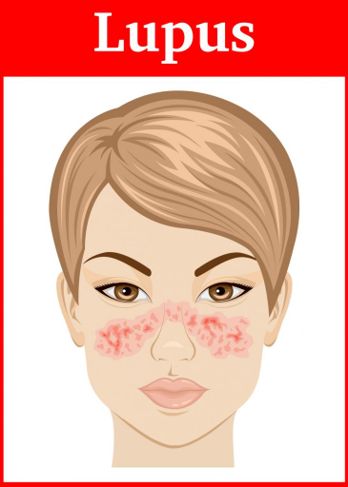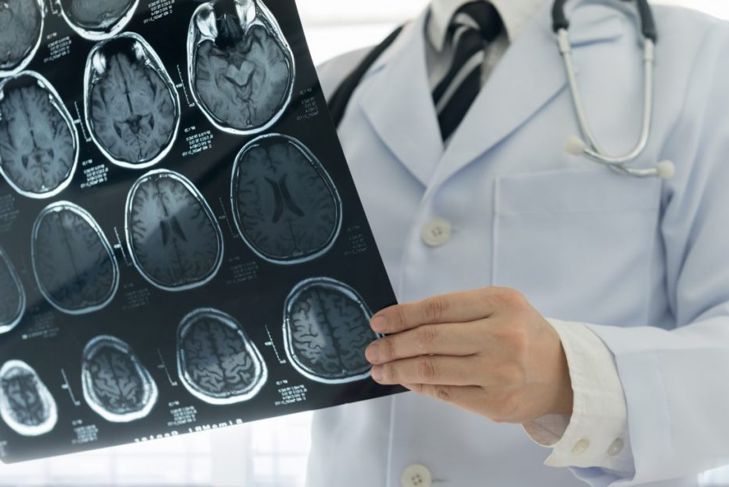You may have been told you have lupus, or maybe you suspect you have lupus, but you’re not sure. Lupus is an autoimmune disease that affects your immune system, causing it to attack various parts of your body. Because lupus imitates so many diseases, it can have multiple symptoms. Doctors don’t know what causes lupus, but they know that something initiates its appearance and causes your immune system to attack parts of your body. It’s important to have your doctor test you for lupus and other diseases should you have some of the following symptoms.
Arthritis
Lupus often causes arthritis, leading to swollen, stiff, and achy joints. Sometimes your joints don’t swell but are painful. You usually notice arthritis in the mornings. Sometimes arthritis lasts for a few days or a few weeks; sometimes you have arthritis that lasts. Usually, arthritis is painful but is seldom debilitating.
Butterfly or Malar Rash
One characteristic feature of lupus is the butterfly or malar rash that can appear over the bridge of your nose and across your cheeks in a butterfly pattern. This rash doesn’t appear on everyone, so just because you don’t have the rash, it doesn’t rule out lupus. Lupus can also cause other skin problems, so it behooves you to have any rashes checked out.
Other Rashes Caused by Lupus
Lupus can cause other types of rashes besides the butterfly rash. Discoid Lupus is a type of lupus that affects the skin. Some rashes are round that get worse with sun exposure and can scar. You may have other types of rashes on the legs, arms, and torso. A rare type of rash is the bullous lupus rashes that actually blister.
Fatigue
If you have lupus, you may be feeling tired all the time or have low energy. One of the classic symptoms of lupus is extreme fatigue or fatigue that lasts for a long time. Sometimes the fatigue is due to anemia caused by the disease, but anemia isn’t the only cause of fatigue in lupus. If you are feeling tired all the time or don’t have the energy to do things you would like to do, you need to talk to your doctor and get tested for lupus or other diseases.
Headaches
Getting a headache once in a while is normal. Getting headaches, feeling confused often, or even forgetting things a lot is a sign of something abnormal going on. Having headaches frequently need to be checked out by a doctor. Lupus can cause headaches, memory loss, and confusion which may signal that lupus is targeting your nerves and brain.
Fever
If you have lupus, you may have an unexplained, low-grade fever. Your fever will most likely be below 102 degrees Fahrenheit. In many cases, you may just think you are sick, especially if your joints are achy and you have a headache. The fever occurs with a sudden flare-up or may be due to an infection.
Raynaud’s Phenomenon
Some people who have lupus experience Raynaud’s phenomenon. This is where the fingers and toes turn white or even blue or purple due to stress or cold. The body overreacts to the cold or stress and pulls the blood away from the extremities as if it were dealing with extremely cold temperatures. It reduces blood flow and can damage tissues.
Edema
People who have lupus may experience edema, that is fluid and swelling in the hands, feet, ankles, legs, or around the eyes. It will give the affected area a puffy and swollen look to it. Swollen feet and ankles can make walking difficult and painful. Even wearing shoes that you normally wear can be difficult with lupus.
Chest Pain
If you experience chest pain, especially while breathing, you need to see the doctor immediately to be sure you aren’t experiencing a heart attack or stroke. Lupus can cause chest pain while taking deep breaths due to pleurisy. The pleura lining around your lungs can become inflamed from coughing, infections, or lupus, among other conditions. If the doctor determines that you have pleurisy, you may wish to be screened for lupus as well, especially if you have other lupus symptoms.
Seizures
Seizures are serious, no matter what the cause might be, so if you have seizures, you should see your doctor and have the doctor rule out lupus as well as other serious conditions. A sign that lupus is attacking your central nervous system is seizures. They can be very destructive and lead to other problems if not treated.

 Home
Home Health
Health Diet & Nutrition
Diet & Nutrition Living Well
Living Well More
More




















